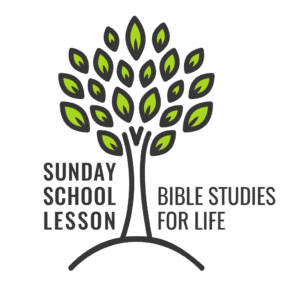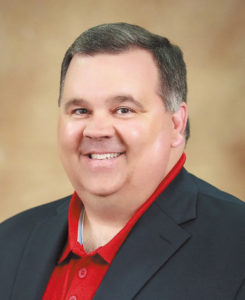By Clay Hallmark
Pastor, First Baptist Church, Lexington
Focal Passage: Ecclesiastes 1:1-14
 An 8-year-old boy came to his mother and asked, “Where did I come from?” The mother took a deep breath but was determined to answer it truthfully. So, she started explaining “the birds and the bees” in explicit detail. About 20 minutes later, her horrified little boy interrupted her and said, “But mommy, where did I come from? My friend Jimmy said he came from Memphis.”
An 8-year-old boy came to his mother and asked, “Where did I come from?” The mother took a deep breath but was determined to answer it truthfully. So, she started explaining “the birds and the bees” in explicit detail. About 20 minutes later, her horrified little boy interrupted her and said, “But mommy, where did I come from? My friend Jimmy said he came from Memphis.”
Where did I come from? Why am I here? Does my life have a purpose? These were the questions in the mind of Solomon and is a question that is in the minds of people all around us today.
Solomon sought the purpose for his life in three main areas:
(1) He sought purpose in acquiring possessions. Solomon accumulated more possessions than anyone alive, yet, they left him empty and longing for more.
(2) He sought purpose in acquiring prestige and worldly position. Solomon was the most powerful and prestigious man on the planet during his day. Everyone wanted to be like him, but he still had no purpose.
(3) He sought purpose in acquiring life’s pleasure. Solomon had all the entertainment offered in his day. Still, nothing satisfied him.
Solomon understood that life had to be more than possessions, position or pleasure. He discovered that life’s meaning is found in living out God’s purposes. For Christians, we know that life finds purpose in a personal relationship with Jesus and His purposes.
What did Solomon learn about life? He learned 5 things:
Lesson No. 1: Without God’s purposes, our lives will be wasted (Ecclesiastes 1:2-4). The word “futile” literally means “useless”, “meaningless”, or “empty.” A life that is not lived according to God’s purposes becomes a life that is wasted. God created us to make a difference!
Lesson No. 2: Without God’s purposes, our lives grow weary (vv. 5-7). Solomon gives us three examples of how life can be a continual circle of monotonous activities: The rotation of the sun, the swirling of the wind, and the flowing of waters into an ocean that never empties. We can get into a rut of mindless routines and meaningless activities day after day. This happens in every area of life. We bring this mindset to our Christian lives as reading the Bible, worship, Sunday School or many other things become meaningless routines. We lose perspective, grow weary, burn out and give up.
Lesson No. 3: Without God’s purposes, life always leaves us wanting (vv. 8-10). A life lived without God’s purposes is an unsatisfying, discontented life. There is nothing new under the sun. This kind of life is restless and uneasy. When we find ourselves restless, we become a target for Satan’s discouragement, temptations and doubts.
Lesson No. 4: Without God’s purposes, our lives seem to have no worth (v. 11). Most of us are living lives that make no difference for the kingdom of God. Solomon understood that life can become insignificant if we are not investing our lives in things or people that are significant and eternal. Our value is found in being a child of God who makes a contribution for His kingdom.
Lesson No. 5: Without God’s purposes, our lives become wayward (vv. 14-15). There are things in life over which we have no control. Life is always changing. However, the Lord is always in control. Nothing takes the Lord by surprise. We must learn to trust our lives and challenges to Him. Our purpose is found in a relationship with Jesus, growing as disciples, ministry to others, living out faith, sharing His love, and seeking to make a difference! B&R — Hallmark is pastor of First Baptist Church, Lexington.

